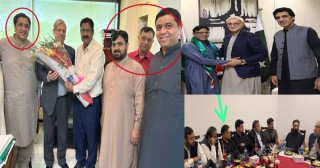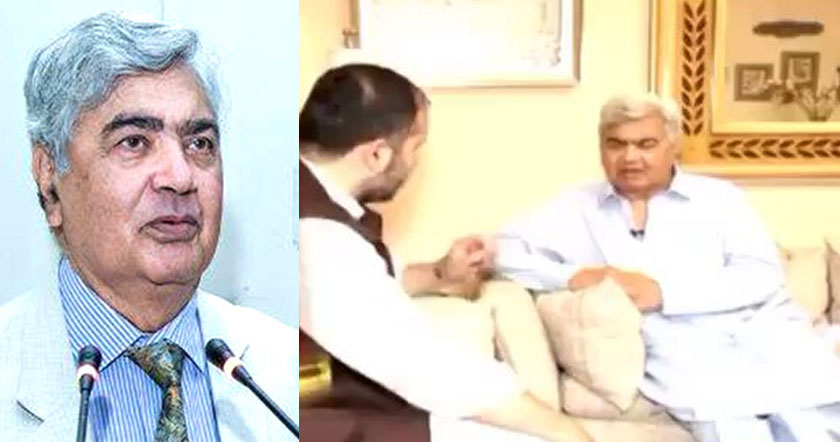By Reuters
RIYADH (Reuters) - Saudi Arabia will not renew the work permits of foreign workers who have spent six years in the country as part of its plan to create jobs for nationals, its labour minister was quoted as saying on Monday.
"The current situation calls for strong cooperation between the government and private sector in solving the problem of unemployment with hundreds of thousands looking for work," Adil Fakieh was quoted as saying by the pan-Arab newspaper al-Hayat.
Fakieh did not say when the decision would be implemented or whether it would be applied to all foreign workers or to specific jobs.
Unemployment among nationals in the kingdom, which sits on more than a fifth of global oil reserves and is the world's biggest oil exporter, is currently 10.5 percent, he said, adding that 28 percent of the unemployed were women and 40 percent high school graduates.
Fakieh said there were currently eight million foreign workers in the kingdom of whom six million work in the private sector. Remittances from foreign workers total 100 billion riyals ($27 billion) a year, he said.
Saudi Arabia does not regularly publish data on unemployment, a sensitive issue since it highlights fissures in wealth distribution in the absolute monarchy with no elected parliament, where newspapers tend to carry the official line.
King Abdullah offered Saudis $93 billion in handouts in March to stave off unrest of the kind rocking other parts of the Arab world. This followed a $37 billion package announced in February in an initial move to ease social tensions.
Despite its wealth, unemployment in the Gulf Arab state has risen as an outdated school system focused on religion and the Arabic language produces graduates who have difficulty finding jobs with private firms.
Companies favour workers from Asia, prepared to work long hours for low salaries, or well-paid foreign experts.
Many Saudis work in the public sector but, in contrast to other Gulf oil producers such as Kuwait, citizens do not automatically get a job because of the rapidly rising population, which now stands at almost 19 million.
In 1994 the government began a "Saudisation" plan, setting quotas for the number of nationals private firms must hire. The programme failed to achieve a significant increase in the participation of nationals in the private sector, where Saudis still account for only 10 percent of employees.
Almost 70 percent of Saudis are under the age of 30, and the population is increasing by around 2.4 percent annually.
In an attempt to create thousands of new jobs and diversify its oil-dominated economy, Saudi Arabia launched a $400 billion five-year spending plan in 2008, the largest stimulus relative to gross domestic product among the world's 20 leading nations. ($1=3.750 Saudi Arabian Riyals)
(Reporting by Jason Benham, editing by Tim Pearce)
http://en.news.maktoob.com/20090000...ork_permits_to_help_locals_-paper/Article.htm
RIYADH (Reuters) - Saudi Arabia will not renew the work permits of foreign workers who have spent six years in the country as part of its plan to create jobs for nationals, its labour minister was quoted as saying on Monday.
"The current situation calls for strong cooperation between the government and private sector in solving the problem of unemployment with hundreds of thousands looking for work," Adil Fakieh was quoted as saying by the pan-Arab newspaper al-Hayat.
Fakieh did not say when the decision would be implemented or whether it would be applied to all foreign workers or to specific jobs.
Unemployment among nationals in the kingdom, which sits on more than a fifth of global oil reserves and is the world's biggest oil exporter, is currently 10.5 percent, he said, adding that 28 percent of the unemployed were women and 40 percent high school graduates.
Fakieh said there were currently eight million foreign workers in the kingdom of whom six million work in the private sector. Remittances from foreign workers total 100 billion riyals ($27 billion) a year, he said.
Saudi Arabia does not regularly publish data on unemployment, a sensitive issue since it highlights fissures in wealth distribution in the absolute monarchy with no elected parliament, where newspapers tend to carry the official line.
King Abdullah offered Saudis $93 billion in handouts in March to stave off unrest of the kind rocking other parts of the Arab world. This followed a $37 billion package announced in February in an initial move to ease social tensions.
Despite its wealth, unemployment in the Gulf Arab state has risen as an outdated school system focused on religion and the Arabic language produces graduates who have difficulty finding jobs with private firms.
Companies favour workers from Asia, prepared to work long hours for low salaries, or well-paid foreign experts.
Many Saudis work in the public sector but, in contrast to other Gulf oil producers such as Kuwait, citizens do not automatically get a job because of the rapidly rising population, which now stands at almost 19 million.
In 1994 the government began a "Saudisation" plan, setting quotas for the number of nationals private firms must hire. The programme failed to achieve a significant increase in the participation of nationals in the private sector, where Saudis still account for only 10 percent of employees.
Almost 70 percent of Saudis are under the age of 30, and the population is increasing by around 2.4 percent annually.
In an attempt to create thousands of new jobs and diversify its oil-dominated economy, Saudi Arabia launched a $400 billion five-year spending plan in 2008, the largest stimulus relative to gross domestic product among the world's 20 leading nations. ($1=3.750 Saudi Arabian Riyals)
(Reporting by Jason Benham, editing by Tim Pearce)
http://en.news.maktoob.com/20090000...ork_permits_to_help_locals_-paper/Article.htm






































